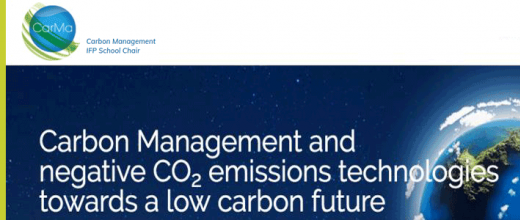28.03.2020
2 minutes of reading
The International Carbon Capture, Utilization and Storage Conference (iCCUS) was held in Riyadh on 25 and 26 February. Very actively involved in research into carbon capture, storage and utilization technologies, IFP Energies nouvelles - represented by Florence Delprat-Jannaud, manager of the "CO2 Capture" and "Management of the underground environment for new energy technologies" programs, and Catherine Rivière, Executive Vice-President - was present to share its expertise in the field.
The role of CCUS in the reduction of CO2 is becoming established
At the International Carbon Capture, Utilization and Storage Conference (iCCUS), held in Riyadh on 25 and 26 February, Florence Delprat-Jannaud, manager of the "CO2 Capture and Storage" and "Management of the underground environment for new energy technologies" programs at the IFPEN Ressources énergétiques Carnot Institute, spoke at a round table focusing on the role of CCUS in energy-intensive industries.
Organized under the patronage of Saudi Arabia’s Energy Minister and Bahrain’s Oil Minister, the conference brought together more than 600 participants. This mobilization underlines the commitment of countries, industry and scientists to limiting the global temperature increase to no more than 2°C.
It also confirms the role of carbon capture, storage and utilization (CCUS) technologies in reducing industrial CO2 emissions, with the IEA’s Sustainable Development scenario estimating that it is necessary to capture and store 6 billion metric tons of CO2 by 2050.
A strong position built on long-standing expertise focused on the future
At the conference, IFPEN was able to present its global vision of the entire CCS chain. With nearly twenty years’ experience working on these technologies, it draws on its long-standing expertise in the field of gas treatment to tackle specific problems associated with CO2 capture, as well as its exploration-production expertise for storage aspects.
With a clear vision of the future for these technologies, IFPEN has also forged a partnership with Total in order to accelerate their deployment. The "Carbon management and negative CO2 emissions technologies towards a low carbon future" (CarMa) chair, created within the framework of this partnership, is aimed at training a new generation of international researchers and experts capable of developing innovative solutions to reduce the CO2 present in the atmosphere.






